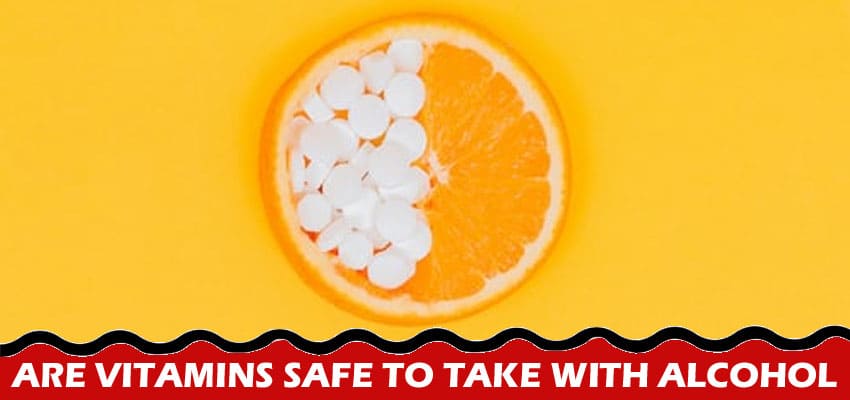The short answer is yes, you can take vitamins with alcohol. However, this can lead to an increased risk of side effects. It is advisable to consult with your doctor before mixing the two. Additionally, drinking alcohol can deplete specific vitamins and minerals, so monitoring your vitamin intake and supplementing any deficiencies is highly recommended. Moreover, drinking alcohol in excess can be dangerous, so it is advisable to do so in moderation.
Alcohol abuse breaks down vitamins and other nutrients. This can lead to a deficiency of specific vitamins, even if you take them regularly. The lack of essential vitamins and nutrients can weaken the immune system and cause other health issues. It can also affect cognitive functions and increase mental disorders’ risk. Alcoholism is considered a chronic illness because it is long-lasting and adversely affects all areas of a person’s life. It is also a progressive illness, which means its effects worsen the longer it continues.
Take vitamins at least two hours before or after drinking alcohol
Eat a balanced diet of fresh fruits and vegetables. Avoid processed and sugary foods, which deplete vitamins and minerals. Drink plenty of water to stay hydrated and help your body absorb nutrients. For instance, incorporating vegetables like spinach, kale, and broccoli into your daily meals can provide essential vitamins and minerals like Vitamin A, Vitamin K, and iron.
Avoid high vitamin doses, especially if you drink alcohol
Consume small amounts of alcohol to minimize risk. Ask your doctor for advice on vitamins and supplements if necessary. Drink plenty of water throughout the day for optimal hydration. For example, drinking two to three glasses of water daily can reduce the dehydration risk and keep your body functioning correctly. If you are taking cyclobenzaprine, consult your doctor before drinking alcohol, as the combination can be dangerous.
Limit your alcohol intake
Avoid taking vitamins and supplements with alcohol as it can interfere with their absorption in the body. Speak to your doctor if you have questions or concerns about mixing vitamins and supplements with alcohol.
Alcohol interferes with vitamin A absorption.
For example, alcohol can reduce vitamin B12 absorption, which is needed for red blood cell production and nerve function. Additionally, alcohol impairs the absorption of vitamins A, D, E, and K. Long-term alcohol use can lead to vitamin deficiencies, resulting in serious health issues.
Drink at least eight glasses of water a day to stay hydrated. Eating a balanced diet is essential for overall health. Avoid sugary drinks and opt for water instead. It is also critical to note that drinking alcohol can affect your body’s ability to absorb vitamins and minerals. Be sure to take a vitamin supplement if you drink regularly. For instance, alcohol can reduce the absorption of important B vitamins essential for energy production and healthy nerve and brain function.
Alcohol can interfere with vitamin absorption, including vitamin B12, folate, and thiamin.
Low levels of these vitamins can cause fatigue, memory loss, and other neurological issues. Long-term alcohol use can also lead to anemia caused by low red blood cells. This can lead to fatigue and other symptoms.
Alcohol damages the liver, which breaks down vitamins and other nutrients
As a result, the body can’t absorb the vitamins it needs to function correctly, leading to vitamin deficiencies. This can cause various health problems, including fatigue and neurological issues. Furthermore, this can lead to deficiencies in specific vitamins, such as B vitamins and folic acid. As a result, the body is deprived of nutrients for proper functioning.
Drink in moderation
To prevent these health issues, it is essential to drink alcohol in moderation and ensure nutrition from other sources. Eating a balanced diet and taking multivitamins meet your body’s needs.
Bottom line
If you are concerned about alcohol’s effects on vitamin intake, talk to your doctor. They can help you determine if you are at risk of a deficiency and recommend ways to improve your vitamin intake. Your doctor may also suggest taking vitamin supplements or making dietary changes to ensure you get the recommended daily intake of vitamins and minerals. They can also advise you on managing alcohol consumption to reduce potential risks.


